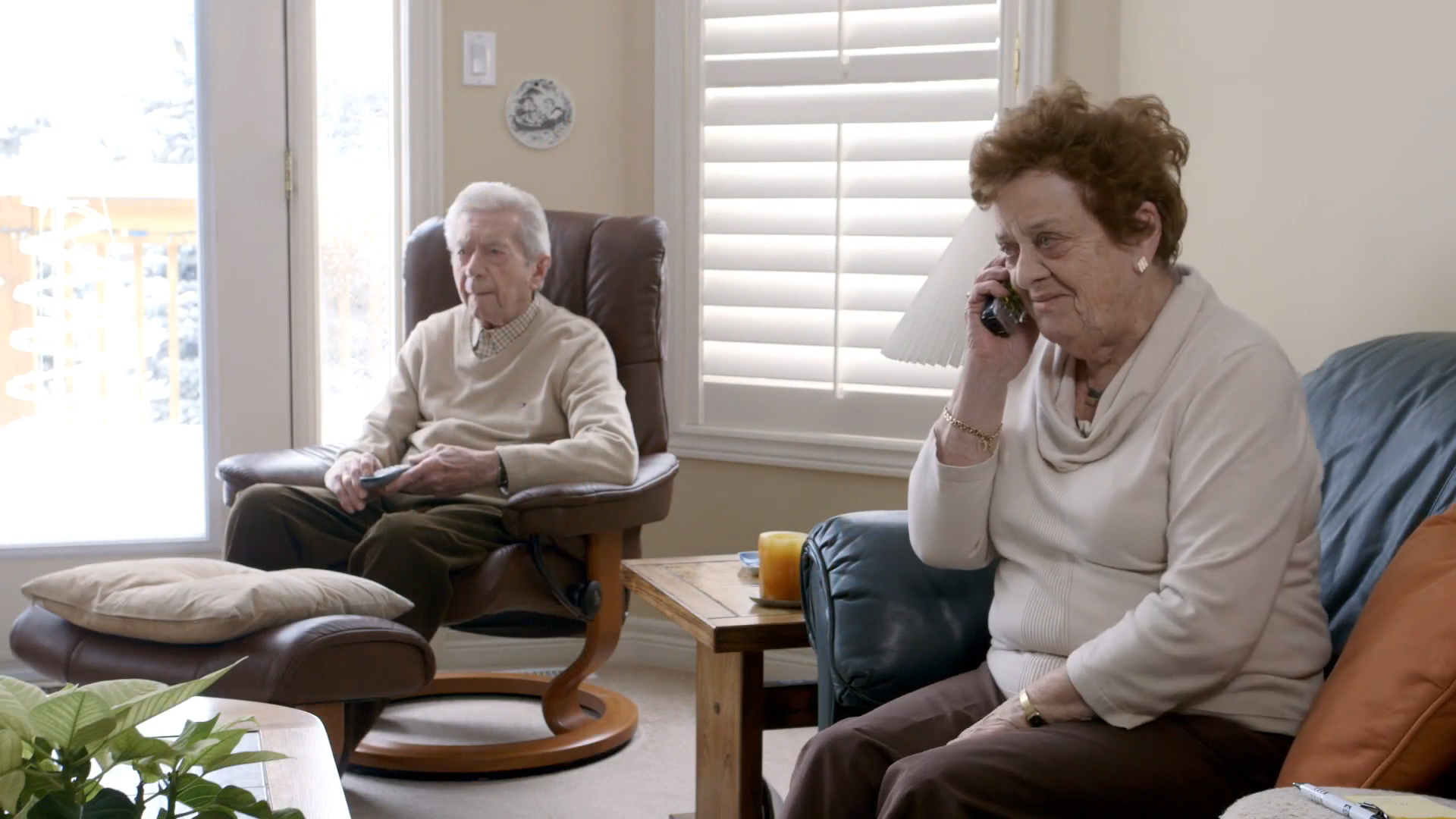Take Otto and Ulla for example. Otto is 90 years old, and at 85, Ulla is his caregiver. Otto and Ulla have been married for 66 years and live together at home. Otto is struggling with a chronic illness and, as a result, has enrolled in Telehomecare. “It’s the best thing that ever happened, so you don’t have to go to the doctor and sit and wait, and wait, and wait….” OTN Telehomecare, a free-to-patients program supported by Canada Health Infoway and the Ontario Ministry of Health and Long-Term Care, empowers patients to take control of their own health through coaching and by equipping them with self-monitoring tools. The program has had outstanding success in Ontario, with a more than 50 per cent reduction in hospital admissions and ER visits among Telehomecare patients.
Ian, a former OTN Telehomecare patient said he was grateful that Telehomecare kept him out of the hospital because it was hard on his family to see him there. And Beatrice, 77, an OTN Telehomecare patient who said “I really can’t believe the care I’m getting — I never expected it. You know, sometimes you feel like you’re all by yourself and nobody cares, but I do have people who care.”
Of course, OTN patient stories go far beyond Telehomecare. There’s the patient who received palliative care through OTN’s video visit technology, so that she could be at home with her family in her final days. There’s also OTN’s eConsult program which is giving patients access to speciality consultations in as little as five days – eliminating the stress and costs associated with travel.
Telemedicine is clearly pointing the way to the future of health care.
As we celebrate Digital Health Week, where do you think the future of health care is heading?
Have a comment about this post? We’d love to hear from you.





